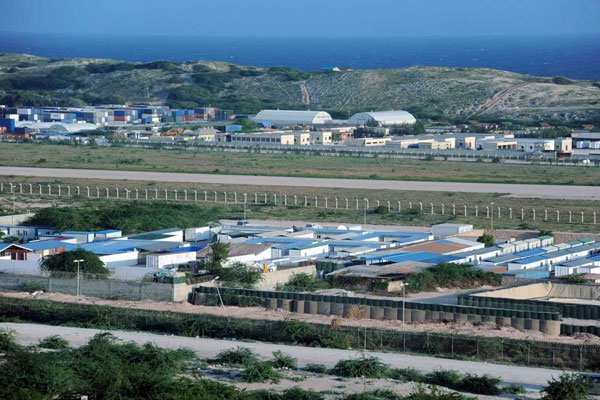Authors Abdi Gele1 (PhD) and Abdiqani Ahmed Farah2 (PhD)
COVID-19 is a disease that can cause lethal respiratory tract infection to humans. Hitherto, there are no vaccines or antiviral drugs to avert or treat covid-19 infection. Its currently affecting 200 countries and territories around the world. In order to contain the spread of the virus, countries have adopted measures restricting people’s movement, social distancing and quarantine regimes for their citizens as well as foreign travelers (1). Given the pernicious and extreme contagious nature of COVID-19, countries that implemented those strategies rather early have relatively contained the pandemic by flattening the curve, hence reducing its mortality. Unfortunately, countries that did not have those measures or delayed the implementation have experienced significant infection and losses in terms of human lives (2).

The experience from East Asia, Europe and the United States (USA) shows that every minute wasted in the preparatory phase have had a heavy price in the response phase. In any given country’s level of preparation does not only determine how it responds to the pandemic but also the after-effect (1). For instance, Italy was not fully prepared when the pandemic hit in the country. Consequently, the country’s COVID-19 cases surged from a few hundred in the third week of February to more than 3,000 in the first week of March, then exceeded 10,000 cases by 10th of March 2020. The USA and United Kingdom (UK) are also desperately trying to contain the pandemic that already claimed thousands of lives in the two nations. While countries with decent health systems are shocked by the plague, there is even greater concern on how countries with broken health systems such as Somalia will be able to cope with the pandemic.
Somalia is at the top of the list of fragile states, which is defined as a state that is not capable in performing basic executive functions such as maintaining security, enabling economic development, and ensuring the essential social and health needs of its population (3). The prolonged crises in the country have rendered the national public health care system particularly dysfunctional. As a result, the health care system in the country has been virtually privatized (4). The delivery of health services is mainly carried out by the private sector with the intention of making revenue, and international non-profit organizations such as the World Health Organization (WHO), the United Nation Children Fund (UNICEF) and other international development partners, with inadequate government-run health services in all federal member states and Mogadishu. Moreover, a large part of the country is controlled by Al-Shabab group, and existing services seldom reach the deserving communities living in those areas.
Somali people focus on issues of immediate survival, with many of them having no reference for the concept of prevention contingency. Disease prevention is explicitly unfamiliar to most Somalis who are accustomed to only seeking health care when ill (3). In a microcosm observation, the Scandinavian countries with a substantial number of Somali immigrants have experienced formidable challenges in controlling COVID-19 transmission among Somali community; a community that traditionally, as aforementioned, barely understands the importance of preventive messages and compliance with instructions given by health authorities. Consequently, out of 15 persons who died of COVID-19 in Stockholm, six were of Somali origin. Further, high transmission of Covid-19 among the Somali community in Oslo was alerted, resulting in more drastic measures to be employed including police enforcement coupled with extensive awareness campaign toward the community.
If the Somali people in developed countries can be affected in such a manner, those currently in Somalia may even be at a greater risk of contracting COVID19. The reason is that the culture and living circumstance of people in Somalia may make them even more resistant to comply with the prescribed preventative measures such as self-quarantine, social distancing and stay at-home. Exacerbated by the absence of a strong government that can enforce aforesaid preventive measures, the pandemic may have a fatal consequence in Somalia. Further, the country does not have a single health research institution that can initiate research data needed to support decision-making processes in order to formulate context-specific preventive measures and public awareness strategies.
Measures the Federal Government and States Introduced and their level of implementations
- Both local and international flights were grounded, though there are some breach in some parts of the country
- Less frequent information campaign about the COVID-19 to the public through the media
- Schools and universities closed but all other big gatherings such as political, leisure and religious gatherings continue unabated despite government instructions.
- Distribution of personal protective equipment and hygienic materials to regional administrations
- Coordination meeting among regional and the National health ministries was held in Mogadishu
- The central government pledged five million dollars for the response of the pandemic.
Neglected opportunities
- Since the vast majority of the trained doctors and nurses in the country are in the private sector, the country’s strong private health system that provides health services to the majority of the population should have been engaged to bring them on board for the National COVID-19 response.
- The Ministry of health does not have vital professional institutions such as the National Institute of Health (NIH) with a capacity to conduct the necessary epidemiological surveillance required for implementing evidence-based response to the pandemic. However, there are many young Somali epidemiologists and public health experts who were trained overseas, many of them being employed at the private Higher Education Institutions (universities) in the country. A substantial number of competent human resources are available in the country, but they were not engaged and subsequently mobilized to guide preparedness and response measures.
- The use of media is vital to inform the public about the rapidly
unfolding circumstances of the pandemic and the necessary preventive measures.
- The country has no diagnostic lab for COVID-19. However, there is upto the standard forensic laboratory in Garowe, which is equipped with sophisticated and modern Biochemistry technology, such as polymerase chain reaction (PCR) machine, analytical apparatus as well as highly qualified staff. The laboratory requires only minimal readjustment to perform the diagnosis of COVID-19. The government should have engaged the laboratory staff and brought them on board early on the preparation phase.
- There are strong business communities in the country that played a significant role in the mitigation of previous national disasters such as Beletweyne floods in 2019. Therefore, the role and the mobilization of the business and diaspora communities to help the government contain the pandemic is as important as that of the international community. The financial contribution by Somali business community and the global diaspora is quick, sustainable and reliable.
Other concerns
Social
reality: It is difficult for people in Somalia to comply
with preventive measures such as stay home and social distancing. Further,
there is that existentially atavistic attitude that closing religious sites, as
a disease preventive measure, may create the anger by god towards the people. Recently,
Puntland Ministry of Justice and Religion banned all religious gatherings. Later,
the administration reversed its decision to conciliate concerned public and the
religious leaders.
The African Union Mission in Somalia (AMISOM)

There are about 22000 UN-forces, from six countries, and a large expatriate community in the country, many of whom are from countries hardly hit by the COVID-19 pandemic. To control their travel movements is beyond the federal government’s control, thus difficult to screen them for the corona virus infection. Note-worthy, the latest Covid-19 positive case reported from Somalia was an expatriate. AMISOM and expats’ uncontrolled travels may pose a threat to the national response to the pandemic.
Internally displaced populations (IDPs)
There are large IDPs in the country, living in camps with high population density, often coupled with unsanitary conditions. These camps already have a great burden of diseases and malnutrition. The practices important in preventing the spread of COVID-19 such as social or physical distancing and frequent handwashing can be exceptionally difficult to put into place in these densely populated areas where sanitation and hygiene services are barely available.
Somali diaspora
About two million Somali diaspora community live in Europe, USA and other countries (5). As Europe and the USA are struggling to stifle the pandemic, many Somalis make their journey back to Somalia in recent weeks to escape from the worst. The second Covid-19 positive case that was reported in Somalia was a Somali National from Italy. Although both national and international flights are banned, the country share borders with Kenya, Ethiopia and Djibouti and has a coastline of 3,300 kilometers, which remains scarcely manned. The coastal and land travel may become a potential route for diaspora members who may be infected with COVID-19.
Weak infrastructure
The ability of Somalia’s health systems to cope with surges in demand, especially for those needing respiratory support, is very poor. Further, the country has no single, functioning laboratory with full capacity to perform diagnostic services necessary for the pandemic. NB: as above-mentioned, there are one or two potential labs that can be quickly converted into one.
Conclusions
Availability and accessibility of financing mechanisms are essential to the prevention, detection, and control of Covid-19 pandemic in Somalia. Therefore, the national authorities should mobilize the business and diaspora communities to raise fund for the pandemic efforts. Moreover, in addition to the major concerns listed above, the aforementioned neglected opportunities should be fully addressed and redressed to prepare the country for an effective response phase.
Abdi Gele, PhD and
Abdiqani Ahmed, PhD
——————
Abdi Gele1 (PhD) is a senior public health researcher at Norwegian Institute of Public Health, and a visiting professor at the School of Public Health and Research, Somali National University. Email: [email protected]
Abdiqani Ahmed Farah2 (PhD) is Epidemiology and Mathematics & Statistics Professor at the Puntland State University, and a Visiting Professor at the School of Public Health and Research, Somali National University. Email: [email protected]
____________________
References
1. Kandel N, Chungong S, Omaar A, Xing J. Health security capacities in the context of COVID-19 outbreak: an analysis of International Health Regulations annual report data from 182 countries. Lancet (London, England). 2020.
2. Horton R. Offline: COVID-19 and the NHS-“a national scandal”. Lancet (London, England). 2020;395(10229):1022.
3. Gele AA, Pettersen KS, Kumar B, Torheim LE. Diabetes Risk by Length of Residence among Somali Women in Oslo Area. Journal of diabetes research. 2016;2016:5423405.
4. Gele AA, Ahmed MY, Kour P, Moallim SA, Salad AM, Kumar B. Beneficiaries of conflict: a qualitative study of people’s trust in the private health care system in Mogadishu, Somalia. Risk management and healthcare policy. 2017;10:127-35.
5. Pew Research Center. 5 facts about the global Somali diaspora. 2016. Available; https://www.pewresearch.org/fact-tank/2016/06/01/5-facts-about-the-global-somali-diaspora/.
We welcome the submission of all articles for possible publication on WardheerNews.com. WardheerNews will only consider articles sent exclusively. Please email your article today . Opinions expressed in this article are those of the author and do not necessarily reflect the views of WardheerNews.
WardheerNew’s tolerance platform is engaging with diversity of opinion, political ideology and self-expression. Tolerance is a necessary ingredient for creativity and civility.Tolerance fuels tenacity and audacity.
WardheerNews waxay tixgelin gaara siinaysaa maqaaladaha sida gaarka ah loogu soo diro ee aan lagu daabicin goobo kale. Maqaalkani wuxuu ka turjumayaa aragtida Qoraaga loomana fasiran karo tan WardheerNews.
Copyright © 2024 WardheerNews, All rights reserved


